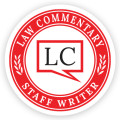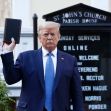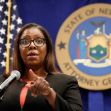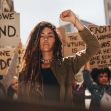On Friday, the U.S. Second Circuit Court of Appeals upheld the dismissal of a lawsuit that sought to challenge the constitutionality of protest curfews imposed in New York City during the 2020 demonstrations following the murder of George Floyd. The curfews were in effect for one week in response to widespread protests against police brutality.
The plaintiffs in the case, Lamel Jeffrey, Thaddeus Blake, and Chayse Pena, were arrested and charged with violating the curfews. They subsequently filed a lawsuit, claiming that the curfew restrictions violated their First Amendment rights to free assembly and their Fourteenth Amendment protections against unlawful arrest. In 2022, a federal district court dismissed the case, ruling that the curfews were a legitimate public safety measure that did not infringe upon their constitutional rights, as they "left open ample alternative channels for expressive activity."
The appeal was heard by a panel of judges from the U.S. Court of Appeals for the Second Circuit. Circuit Judge Reena Raggi wrote for the unanimous panel and affirmed the district court’s decision. Judge Raggi emphasized that the curfew was imposed in response to escalating violence, destruction, and looting in various parts of the city. The court noted that the curfew was a temporary measure, implemented only after traditional policing methods were deemed insufficient, and was lifted as soon as the situation stabilized, even concluding a day earlier than initially planned.
The court's decision aligns with longstanding judicial precedents that allow government entities to impose certain time, place, and manner restrictions on assemblies, provided that these regulations do not target the content or messaging of the protests and are implemented for legitimate public safety purposes. The U.S. Supreme Court first established this principle in the 1941 Cox v. New Hampshire case, which recognized the government's ability to impose reasonable restrictions on public demonstrations.
As a result of this ruling, the plaintiffs' arrests under New York law remain valid. However, the broader legal battle surrounding the rights of protesters during the George Floyd demonstrations is far from over. Several related cases are still pending in courts across the country.






